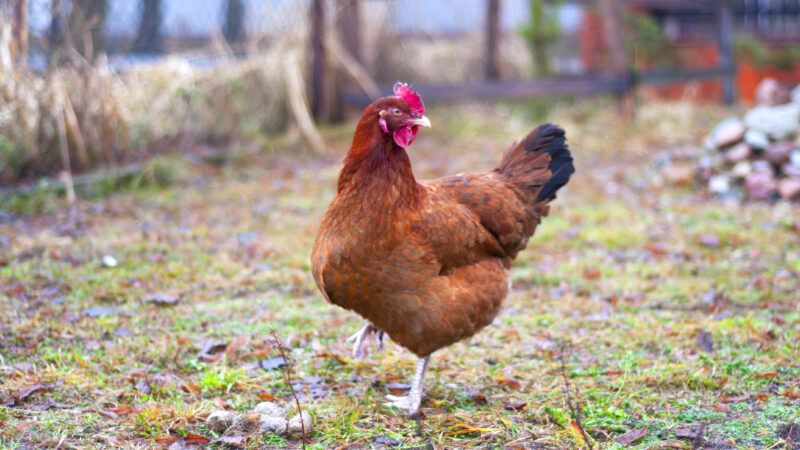American Cities Big and Small Still Ruffling Feathers of Backyard Chicken Owners
Let them lay eggs.

A growing number of people in Philadelphia are raising egg-laying hens in their backyards, the Philadelphia Inquirer reported this week. The head of a group of city chicken owners who the Inquirer spoke with estimates there are at least 12,000 backyard chickens in the city, an increase of 20 percent over just the past year.
The only problem? It's effectively illegal to raise backyard chickens in the city, thanks to a 2004 ordinance.
"The 17-year-old ordinance, aimed at combating neighborhood complaints about noise and odor, limits chicken-raising to properties of at least three acres," the Inquirer reports. "And although most municipalities ban roosters, which crow loudly, Philly is one of the few that also prohibits female hens."
While it's true that most cities and towns prohibit noisy roosters, Philadelphia is hardly "one of the few"—regardless of size—also to ban raising egg-laying hens. As I've detailed in several columns over the years, many cities and towns around the country –from Illinois to Washington, D.C.—have barred residents from raising egg-laying hens.
In January, I discussed a couple in Wellsboro, Pennsylvania, a rural town about four hours from Philadelphia, who were fighting to overturn their town's ban. The couple—who were reported to city officials by their neighbor, the city council head—had already been fined thousands of dollars for raising a handful of chickens and ducks in their yard. (At last check, the town's ban is still in place.)
As I also noted in that column, many larger U.S. cities today are far more welcoming than are small towns like Wellsboro to those who would raise a few chickens in their yards. Several big cities, including Seattle, Denver, and Salt Lake City, have passed good rules in recent years to facilitate urban chicken ownership.
While the Inquirer suggests efforts to overturn Philadelphia's ban are merely simmering, the fight over backyard chickens is on full boil in other parts of the country right now. In Plano, Texas, city councilors, who had been inclined to keep in place an existing ban on raising backyard chickens, warmed to the idea in a public meeting last week. Further south, efforts to legalize backyard chickens are also underway in Galveston.
As I explain in my book Biting the Hands that Feed Us: How Fewer, Smarter Laws Would Make Our Food System More Sustainable—while noting bans in and around Omaha, Detroit, and Chicago—raising a handful of chickens in one's backyard has benefits that a growing number of Americans have rediscovered. They are, I write, "a prized addition to any yard, providing a regular source for fresh eggs and fertilizer and a natural means of controlling pests such as grubs." Those benefits are enjoyed by rural, suburban, and urban residents alike. For example, a 2013 USDA report I cite in the book says that about 1 in 25 residents in Denver, Los Angeles, Miami, and New York City raises egg-laying hens.
While many people are fighting to legalize backyard chickens because of these benefits, some want to take a giant leap backwards. In Grand Forks, N.D., city council president Dana Sande wants to change existing laws that allow backyard poultry in order to take away a few chickens raised by Jacob Willardson, a local 12-year-old boy.
"Beyond a philosophical sort of objection—chickens are farm animals that, in [Sande's] view, shouldn't live in a city—Sande said they also create a noise issue because other domesticated animals bark at the chickens," the Grand Forks Herald reported this week. (Wait until Sande learns about cats!)
Critics who also claim backyard chickens are "unclean, smelly, and noisy" are almost always wrong. Chickens aren't any smellier than cats or dogs. And rules that allow for raising hens generally prohibit raising loud roosters and don't override existing nuisance laws.
It turns out there are no good arguments in favor of laws that prohibit people from raising a handful of egg-laying hens in their backyards.


Show Comments (131)